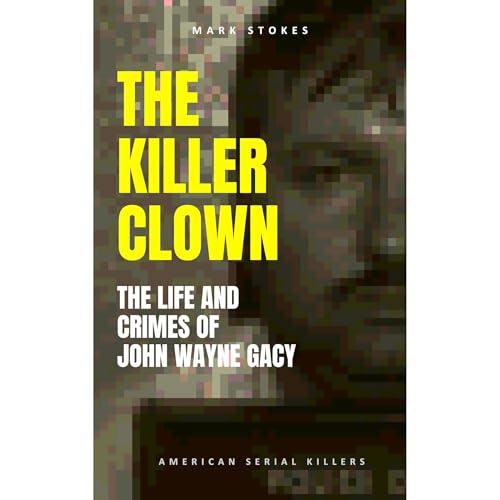
The Killer Clown
The Life and Crimes of John Wayne Gacy
No se pudo agregar al carrito
Add to Cart failed.
Error al Agregar a Lista de Deseos.
Error al eliminar de la lista de deseos.
Error al añadir a tu biblioteca
Error al seguir el podcast
Error al dejar de seguir el podcast
$0.00 por los primeros 30 días
Compra ahora por $3.99
-
Narrado por:
-
Virtual Voice
-
De:
-
Mark Stokes

Este título utiliza narración de voz virtual
In the quiet suburban streets of Chicago lived a man adored by his community—a hospital volunteer, a civic-minded businessman, and a jovial performer known as “Pogo the Clown.” But behind the face paint and well-crafted charm lurked unimaginable horror. The Killer Clown exposes John Wayne Gacy in all his terrifying contradiction—half clown, half predator—as the man who raped, tortured, and murdered at least 33 young men and boys between 1972 and 1978, hiding remains in the very crawlspace beneath his home and discarding others in the nearby river.
This book weaves together trial transcripts, police records, survivor accounts, and forensic findings to trace Gacy’s descent from borderline anomalies of his youth into becoming one of history’s most notorious serial killers. Witness the meticulous unraveling of his crimes—from the trickish lure of handcuffs and magic tricks to the grim reality of murders buried under his home—while chronicling the tireless efforts of investigators to dismantle his façade and deliver justice. The chilling investigation reveals not only a monstrous crime but also the flaws in societal and institutional vigilance.
Yet this is more than a catalog of depravity—it’s a haunting reminder of how evil can hide behind familiarity and how surviving communities must reconcile with trauma long after the horror is exposed. Honouring the victims whose names were once unheard and giving voice to the survivors and their enduring grief, The Killer Clown probes the cultural blind spots and lingering shadows cast by Gacy’s crimes. Riveting, sobering, and unflinching, this book compels us to confront the fragility of trust and the enduring need to look beyond appearances to the truths that lie beneath.
No research
Se ha producido un error. Vuelve a intentarlo dentro de unos minutos.


